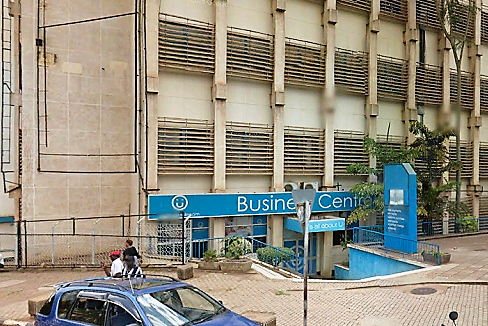Uganda Telecom Ltd (UTL) Administrator, Bemanya Twebaze has detailed the state of affairs at Uganda’s oldest telecom firm, revealing that the company is currently indebted to the tune of Shs530bn.
Uganda Telecom Limited (UTL) is an insolvent company whose shareholders are Ucom, a Libyan Government entity and Government of Uganda (GoU) through the Ministry of Finance, Planning and Economic Development holding 69% and 31% respectively.
In March 2017, Ucom wrote to GoU withdrawing any future funding from UTL with all its Directors resigning from the Board. Following the due process of the law, UTL was put under Administration with a view of making it healthier, attract investment and settle creditors.
The Official Receiver who is the Registrar General of URSB (Twebaze) was appointed as the Administrator.
The Administrator says he entered into an Administration deed with the shareholders where they ceded to him all their powers to run the company.
“He can sale its assets either in piecemeal or as a whole, among others. His powers are derived from the Insolvency Laws of Uganda that among others require him to work independent of shareholders and put Creditors rights at his forefront,” Twebaze says in a statement.
He admits that the company is heavily indebted.
“…it’s true the company (UTL) is heavily indebted. On commencement of Administration we asked all creditors to indicate amounts UTL owed them and the claims were up to a tune of Shs940bn. After a rigorous exercise the verified figure stands at Shs530bn. Some of the creditors shied away from verifying their claims and others were found to be fictitious,” Twebaze says in a statement.

The statement adds that the Administrator found UTL in a sorry state. “The company was heavily indebted with liabilities estimated at over Shs900 billion owed to various creditors including statutory bodies (URA, NSSF and UCC), shareholders and suppliers against an estimated asset value of Shs148 billion. Interconnect partners like MTN and Airtel, utility companies and key suppliers were interrupting services due to nonpayment of their services.”
Twebaze reveals that UTL’s monthly revenue has stagnated at an average of Shs4.2bn since commencement of Administration.
“Efforts to increase it have been hampered by lack of funds to upgrade the network that does not meet customer’s expectations. With all these limitations the ISP revenue has grown by 16% from Shs2.2bn in April 2017 to Shs2.6bn. However, the GSM revenue has reduced by 61% from Shs793m in April 2017 to Shs308m in May 2019 because we running a 2G network compared to competition at 4G,” he says.
The statement adds that employees were highly demotivated with salaries not paid on time, customers churning at a high rate and the company faced with a lot of revenue leakage.
“The top management team was earning in hundreds of millions at the expense of the company. Sites were being switched off slowly and it was only a matter of days before the company closed,” it adds.
Twebaze (The Administrator) says he had two options to either liquidate the company or try optimizing its operations, making the company healthier and attracting investment.
“The latter option was chosen due to the strategic nature of the company to the economy and after realization that the company was suffering from two curable diseases – poor corporate governance (mismanagement) and no capital injection in several years,” he says.
He also denies blocking the auditing of UTL.
“As Administrator I have not blocked any Audit. However, I share the same view as the Auditor General that this is not the right time for an audit. Final Accounts will be availed for auditing at the end of administration due on 22nd November 2019. Nonetheless the law requires us to make periodic reports every 6 months. These have always been done and shared with court and all creditors. They are public documents,” he adds.
He also spoke about UTL’s Monthly Operational Expenditure.
“.. with even more sites switched, the cost of fuel and power going up and the rate of failure of equipment increasing due to old age, we have still been able to reduce the monthly operational expenditure (OPEX) by 16% from Shs5.7bn in April 2017 to Shs4.7bn in May 2019. The wage bill has been reduced by 40% from Shs1.6bn in April 2017 to Shs1bn in May 2019,” he says.
He adds: “Site security cost have reduced by 12% from Shs235m in April 2017 to Shs207m in May 2019. The fuel and electricity costs have increased by 20% and 8% respectively mainly due to increase in unit rates from suppliers. Site maintenance costs have increased by 127% from Shs230m in April 2017 to Shs523m in May 2019 mainly due to daily breakdown of very old equipment. Over one hundred generators have been overhauled, battery banks overhauled, grid extended to sites and several sites that were switched off by our predecessors switched on.”
He explains that the process is on to get an investor.
“..as part of my mandate am required to source an investor and use the proceeds of the sale of assets to settle creditors. The process commenced in January 2018 and we have since then received over 20 expressions of interest and held discussions with those potential investors. We are yet to be successful with any of them. Specifically, Teleology Holdings Limited reached the stage of being given an offer that lapsed because they failed to meet the conditions of the offer. The company is still available for a strategic investor and we continue with engagements,” he explains.
He notes that UTL’s entering into administration did not stop it from being insolvent.
“It is still unable to meet all its costs and the Administrator has to prioritize and optimize resources on a day to day basis. UTL still carries the burden of debt accrued before administration that is expected to be cleared by the consideration from the sale of assets to the potential investor. The monthly revenue has stagnated at circa Shs4.2bn and growth is curtailed by lack of CAPEX and outdated technology compared to competition,” Twebaze concludes.






